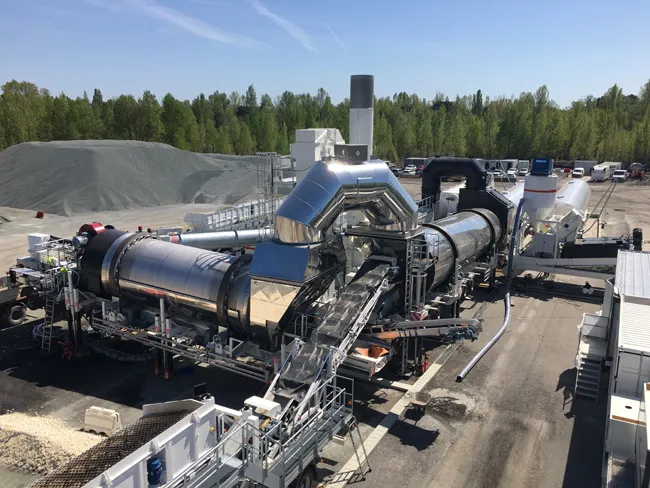
Eurovia has completed part of major French highway renovation project using 100% recycled asphalt. Eurovia, a subsidiary of transport infrastructure firm
Eurovia carried out the work in collaboration with VINCI Autoroutes. The road was rebuilt as part of a major highway renovation project on the VINCI Autoroutes network, along a 1km stretch of the A10 route between Pons and Saint Aubin in south-west France. Eurovia successfully completed this pilot experiment after more than two years of research and development.
The fully recycled road was made possible through the development, in partnership with Marini-Ermont (part of the Fayat Group), of the innovative TRX100 mobile continuous asphalt plant. This plant made it possible to recycle up to 100% of asphalt aggregates from nearby road maintenance sites.
The bulk of the supply could be sourced from the milling of materials produced by the site, minimising the need for fresh material and reducing transport logistics and the site’s carbon footprint, This approach is said to have helped deliver a 50% reduction in greenhouse gas emissions.
VINCI Autoroutes is a leading highway operator in France and the firm says it is keen to further utilise road recycling solutions across its projects. This research project won the ‘Route du futur’ call for projects launched by the French Environment & Energy Management Agency, ADEME.









